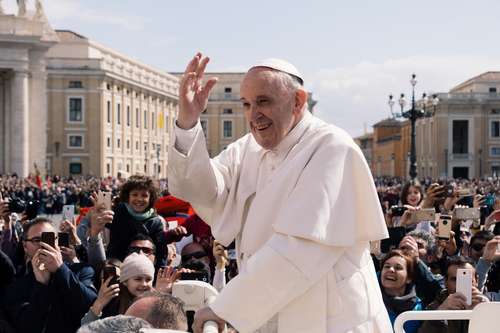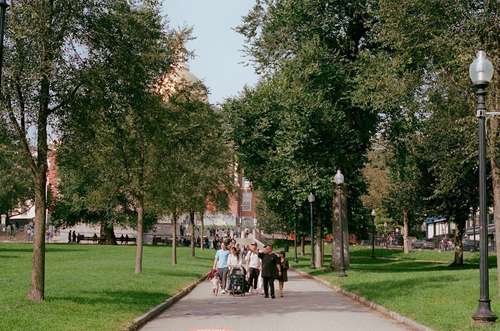Pope Leo XIV has recently taken the global stage by addressing some of today’s most pressing issues, stirring conversations about the widening gap between the rich and the poor and the urgent call for peace. His first interview on economic inequality, social justice, and a path toward reconciliation has resonated with many around the world. With a blend of spiritual insight and a call for reform, he opened a dialogue that many believe is both timely and necessary.
This conversation is not just about numbers or policies; it is about the human face behind the statistics. In a time when the global economy faces challenges due to shifting economic paradigms and polarizing political views, Pope Leo XIV’s words remind us that moral responsibility is at the heart of economic reform. His reflections evoke a sense of shared humanity that transcends borders, resonating with those who have witnessed poverty and the uneven wealth distribution first-hand.
Understanding Economic Inequality: A Global Crisis
The widening wealth distribution gap is more than an economic statistic—it’s a mirror reflecting the disparities that shape our everyday lives. Economic inequality touches every corner of society. In this section, we explore why this issue demands urgent attention from both political leaders and moral authorities alike.
Pope Leo XIV has highlighted that the polarization between the rich and the poor has been deepening over the last few decades. He observes that the undercurrents of capitalism are increasingly leaving behind the most vulnerable. In his conversation, he stressed that the imbalance not only breeds social injustice but also destabilizes communities. For many, it feels as if the scales of wealth are tipped unfairly, creating a chasm that is hard to bridge.
What makes this problem even more significant is its impact on global stability. When vast amounts of wealth concentrate in the hands of a few, poverty and social unrest can follow like a domino effect. It’s like watching a seesaw where one end has all the weight. Economic inequality isn’t merely about income levels; it is about human rights and the moral responsibility to create a fair and just society.
The Catholic Church and Social Justice
There is a long tradition within the Catholic Church to advocate for social justice and equitable wealth distribution. Pope Leo XIV continues this legacy and emphasizes that the Church must play a central role in promoting peace and social equity in a divided world.
Throughout his remarks, he echoed the sentiment that economic inequality undermines the foundational teaching of love towards one’s neighbor. The Catholic Church, through its teachings and community outreach, has long been a source of hope for the marginalized. His emphasis on bridging the wealth gap resonates strongly with church teachings on humility, charity, and mutual respect.
You might ask, how can religious leadership change the tide of a global economic crisis? In his thoughtful dialogue, the Pope pointed to the need for ethical leadership where responsibility is shared among governments, businesses, and communities. His direct appeal to re-examine our priorities underlines an important truth: social justice cannot be achieved in isolation, but only through collective action and sincere dialogue.
The focus on the role of religious institutions reminds us that faith can be a guiding light amid turbulent economic storms. Even as societies grapple with modern economic pressures, the message of compassion underlined by Pope Leo XIV inspires many to reimagine a world where moral values guide economic policies. His words serve as a reminder that the pursuit of peace is not solely the domain of politicians, but a shared challenge for all of us.
Modern Capitalism and the Lessons of the Pandemic
The COVID-19 pandemic was an unexpected wake-up call for many nations, and Pope Leo XIV used this period to outline the need for rethinking modern capitalism. His perspective offers a fresh lens through which we can examine the intersection of commerce, morality, and health crises.
The pandemic exposed the stark realities of economic inequality—from the workers who struggled daily to make ends meet to the former safety nets that were stretched thin by overwhelming demand. Pope Leo XIV noted that the lessons learned during this crisis should not be forgotten once life returns to normal. Instead, they should serve as the foundation for a new era of economic reform and international cooperation.
In discussing the pandemic, he compared our current economic landscape to a fault line waiting to erupt if left unaddressed. The notion is simple: when the most vulnerable segments of society are hit the hardest, it becomes everyone's problem. The Pope urged a reexamination of current economic practices, stressing that reform should include a renewed focus on human rights, fair wealth distribution, and above all, a commitment to peace over profit.
His message was clear—a call for a more compassionate form of capitalism, one that respects the dignity of every person and ensures that growth does not come at the expense of the common good. This approach aligns closely with the principles of social justice and global equity, which have long been cherished by the Catholic Church.
Forging Pathways to Peace and Reconciliation
In the larger conversation about economic inequality, one recurring theme in Pope Leo XIV’s interview was the pursuit of peace. The Pope firmly believes that peace initiatives are inseparable from efforts to correct economic disparity.
For him, world peace is not a distant ideal but a goal that requires immediate action. He argued that without addressing the roots of economic inequality, global conflicts are likely to resurface. The Pope’s emphasis on dialogue and regulated reform in international relations speaks to a broader vision where ethical leadership and conscientious policy-making go hand in hand.
Each step toward reducing the wealth gap is a step toward lowering tensions in international relations. Have you ever wondered what would happen if leaders not only negotiated treaties but also worked together to combat poverty head-on? This is the very dialogue that Pope Leo XIV advocates—a conversation where social justice is prioritized, and every voice matters.
The Pope also highlighted the importance of interfaith discussions and collaborative efforts among nations facing economic instability. His vision of a world where religious teachings help shape policies to support social equity offers a pragmatic approach to achieving global inequality reduction. In his view, peace is a living process that begins with taking care of each other and ensuring that no one is left behind.
The ideas presented by Pope Leo XIV offer a hopeful challenge to current systems. They remind us that economic inequality is not solely an issue of finance but is deeply entangled with human dignity, social justice, and the perennial quest for peace.
In conclusion, the insights shared by Pope Leo XIV serve as a timely reminder of the roles we all play in shaping our future. His emphasis on economic reform, moral responsibility, and the importance of dialogue resonates in a world struggling to find common ground in the face of uncertainty. By focusing on reducing the wealth gap and advocating for peace, he calls on each one of us—leaders, citizens, and communities—to contribute actively towards building a more just and harmonious world. His words encourage us to look beyond immediate challenges and strive for a future where social equity and international understanding pave the way for lasting change.




